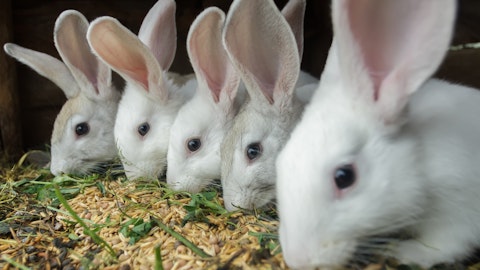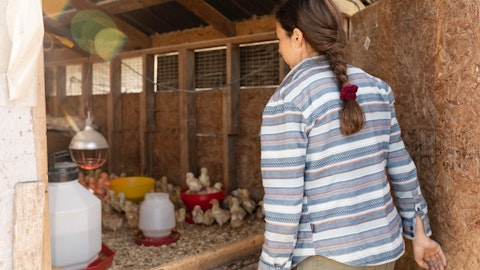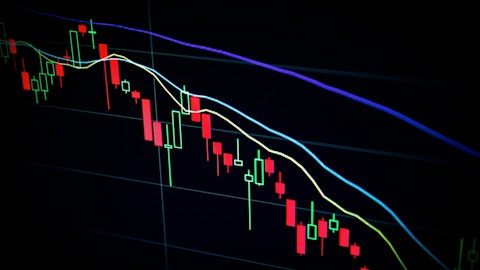I would characterize the fall and winter business, though, more demand driven needs based than even spring, because in the winter, the businesses that are really strong for us and large and robust are things like wood pellets and propane. In fact, three of our top 10 skews during the winter season are two wood pellet skews and the propane skew. Those are demand driven needs based. When it’s cold, people, are burning the pellets in their wood stoves or they are using propane for heating other homes or supplemental heating. And when it’s not cold, they are not. And this time last year, actually as we entered Q3, the last week of Q2 and as we entered Q3, it was we had cooler weather and then that continued throughout the balance of Q3. We didn’t, have that at all this year.
And then even as we’re heading into Q4 here, it’s going to be 80 degrees this weekend in Boston. You just don’t need wood pellets and you don’t need propane during that time. And so you can see it very clearly in our business. On the flip side, we are seeing strength in outdoor projects, outdoor wildlife, those sorts of categories, whether it’s grilling, whether it’s deer corn and the deer hunting season. You can certainly see it in the lawn and garden categories, even in riding lawnmowers. Those businesses this time of year though are just not large enough to offset. Even with nice growth in those categories, they are just not large enough to offset those sorts of pieces that are demand driven. We also do sell a lot of insulated outerwear type categories, whether its coats and a lot, fleece lined pants and those sorts of things, gloves, boots.
I think as it gets cold, I would expect those to not be lost sales. But there is an element of like wood pellets and propane that once you don’t have that cold weather, you do lose it. I think we are being prudent in our implied guidance for the fourth quarter. Last year, we didn’t have – it was not – it was a warmish November. So there – but we know there’s an El Nino that’s in forecast right now. And so we just thought it’d be prudent to not assume that we’d have any upside as we lapped that in November, as we talked about in our prepared remarks. And then of course we’re hurtling [ph] or we’re comping on top of a robust storm from last year that, as we noted in our Q4 earnings call last year, contributed two points of comp to the quarter.
Michael Baker : Excuse me. Thanks. That’s helpful. So it sounds like those seasonal categories are non-discretionary, but only if the weather cooperates. Is that a fair way to put it?
Hal Lawton: Yeah, I think that’s a fair way to – that’s an absolutely fair way to say it.
Michael Baker : Excellent! I appreciate the time. Thank you.
Operator: Thank you. The next question comes from the line of Michael Lasser with UBS. Your line is now open.
Michael Lasser : Good morning. Thank you so much for taking my question. One of the debates on the Tractor Supply Story over the long term is the company has a gross margin right now that’s 150 basis points. That’s higher than it was prior to the pandemic. So what gives you confidence on the long-term outlook, especially as this has become a more profitable business? What’s a realistic expectation that you can hold on to this increased profitability? And then I have one quick follow-up.




